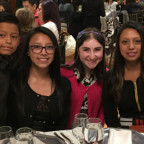Ecuador: Cuenca
-
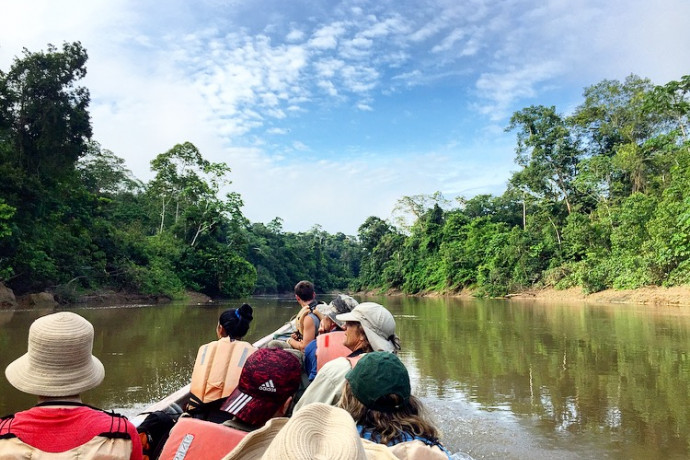 by Carmel Companiott
by Carmel Companiott -
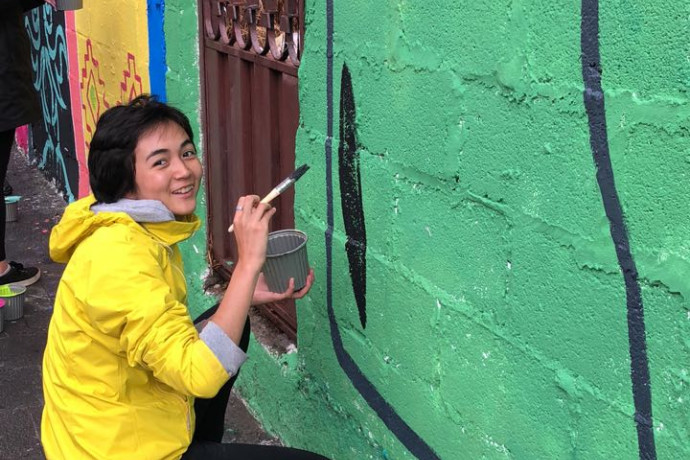
-
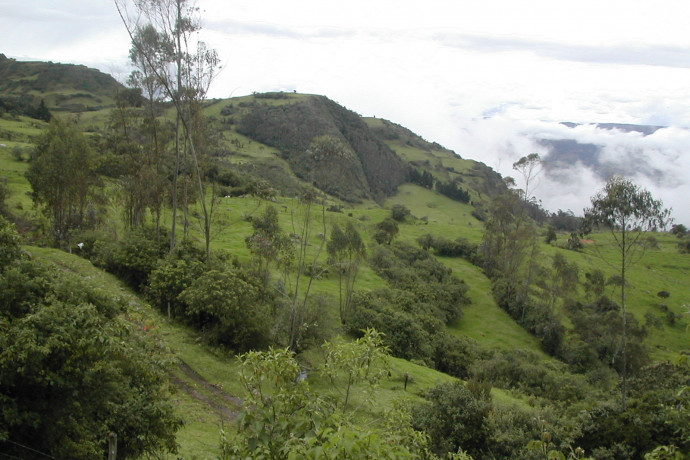
-
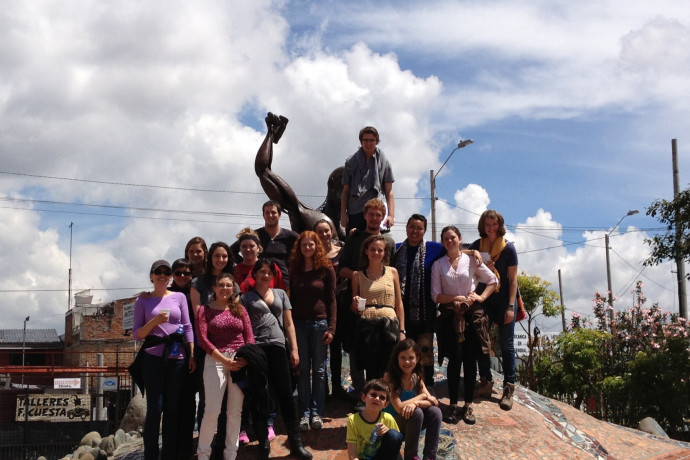 Plaza del herrero y monumento a VulcanoLucrecia Choto
Plaza del herrero y monumento a VulcanoLucrecia Choto -
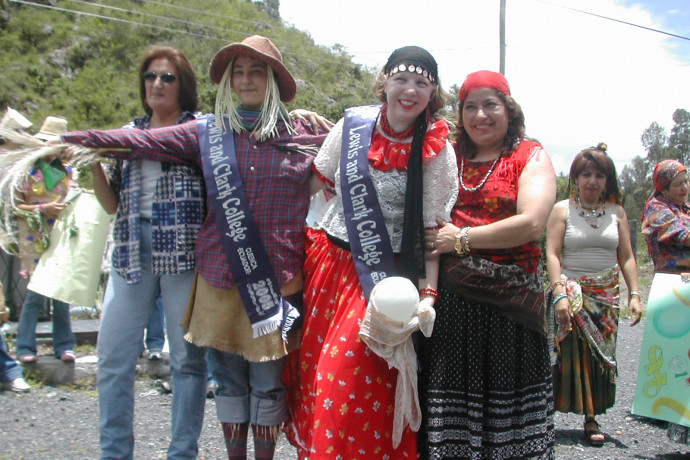
-
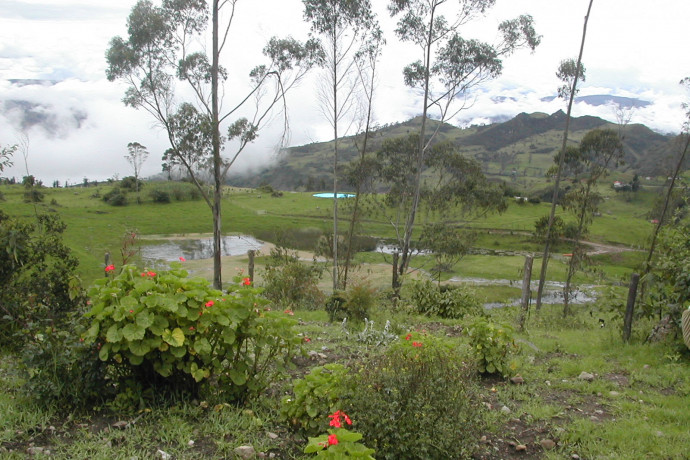
-
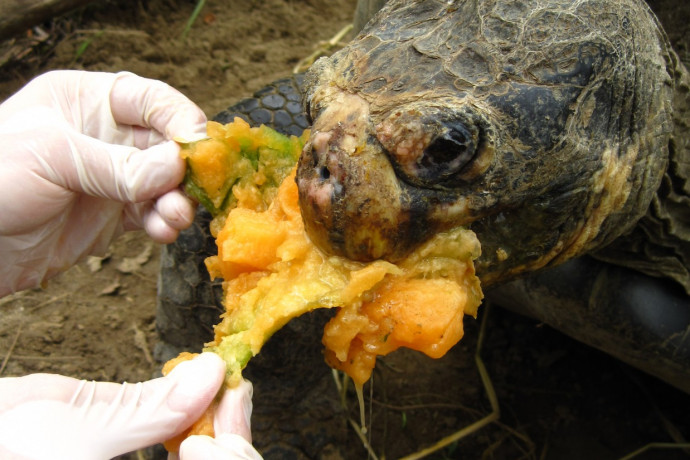 Photographed by Julia Cosgrove
Photographed by Julia Cosgrove -
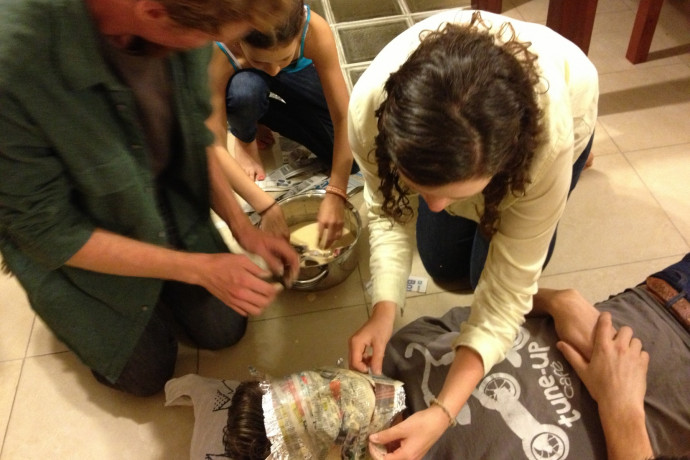 Carnival Mask MakingLucrecia Choto
Carnival Mask MakingLucrecia Choto -
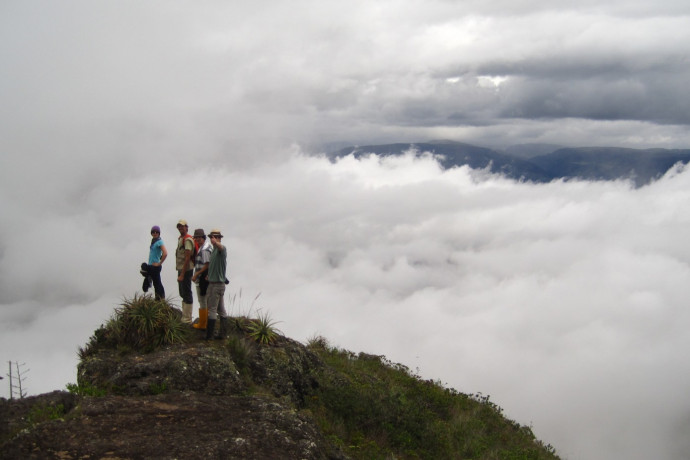 Photographed by Julia Cosgrove
Photographed by Julia Cosgrove -
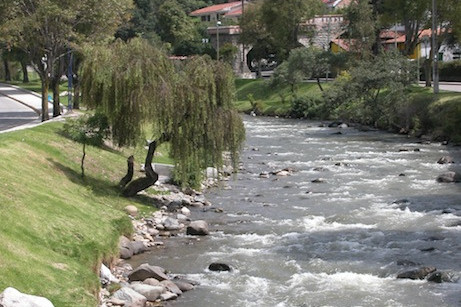 Rio Tomebamba with Iglesia Merced in the backgroundJudy Blankenship
Rio Tomebamba with Iglesia Merced in the backgroundJudy Blankenship -
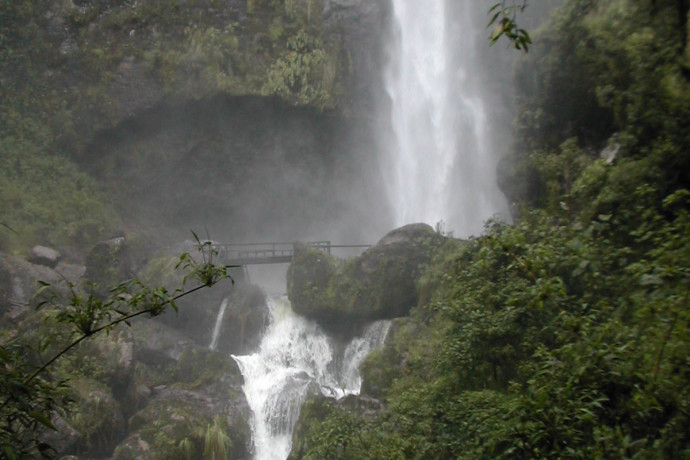
-
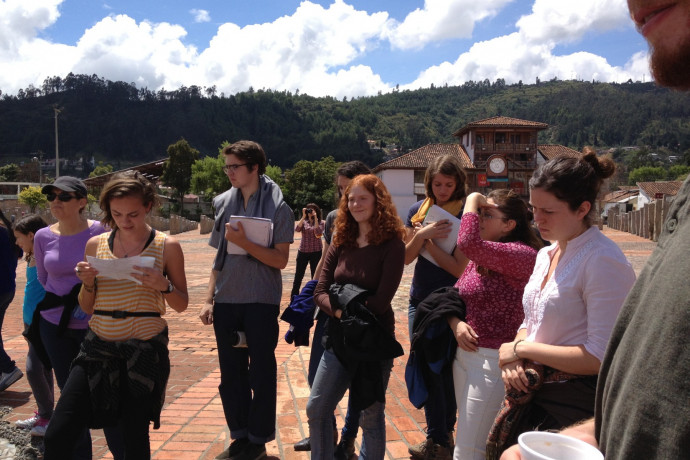 Las Calles: Our ClassroomLucrecia Choto
Las Calles: Our ClassroomLucrecia Choto -
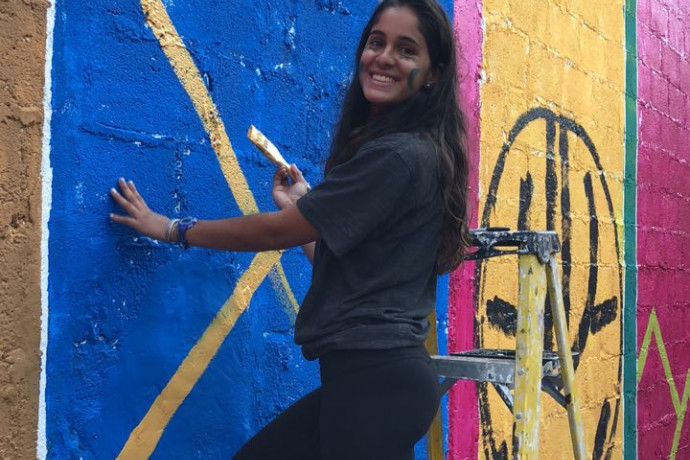
-
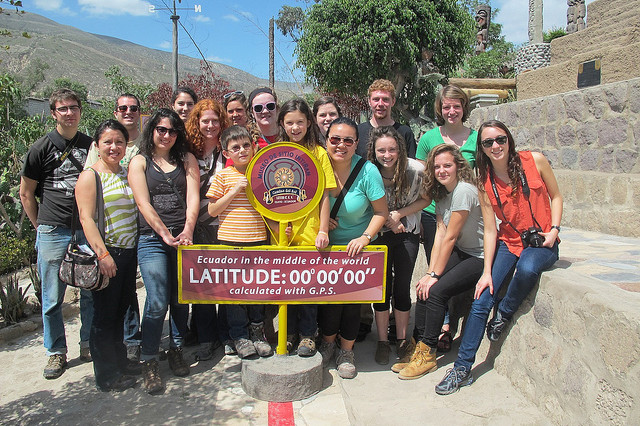 Judy Blankenship
Judy Blankenship -
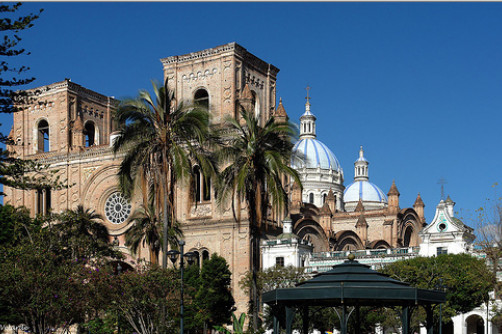 Downtown Cuena- Cathedral from Parque CalderonLucrecia Choto
Downtown Cuena- Cathedral from Parque CalderonLucrecia Choto -
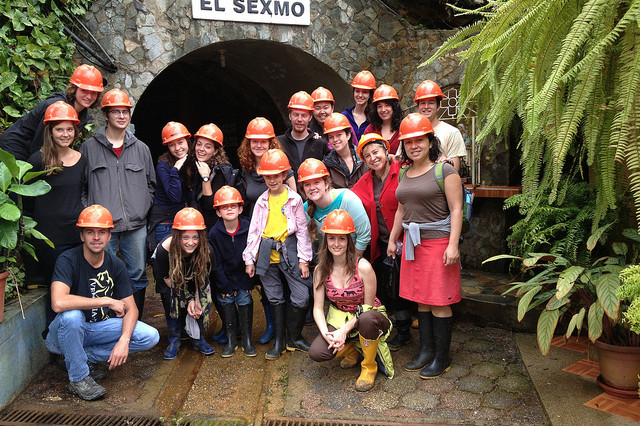 Entering El Sexmo Goldmine in ZarumaLucrecia Choto
Entering El Sexmo Goldmine in ZarumaLucrecia Choto -
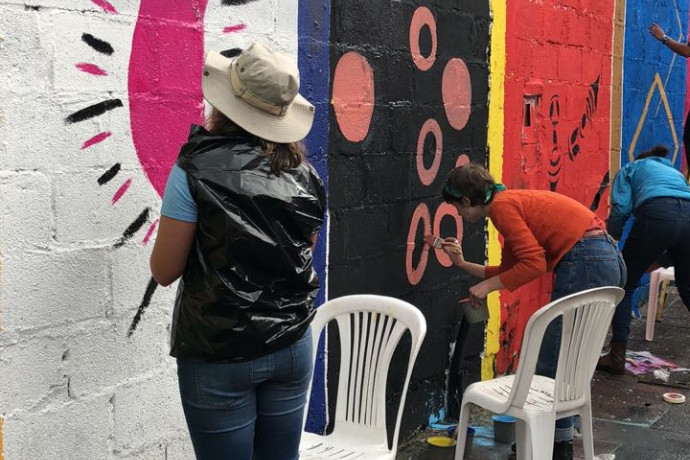
-
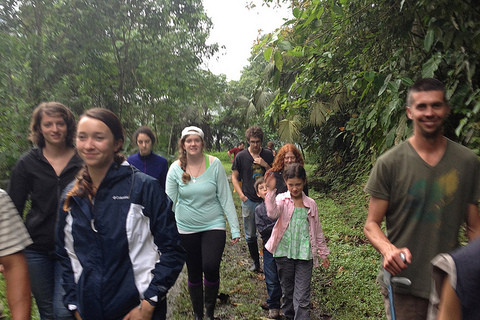 Hiking at JocotocoLucrecia Choto
Hiking at JocotocoLucrecia Choto -
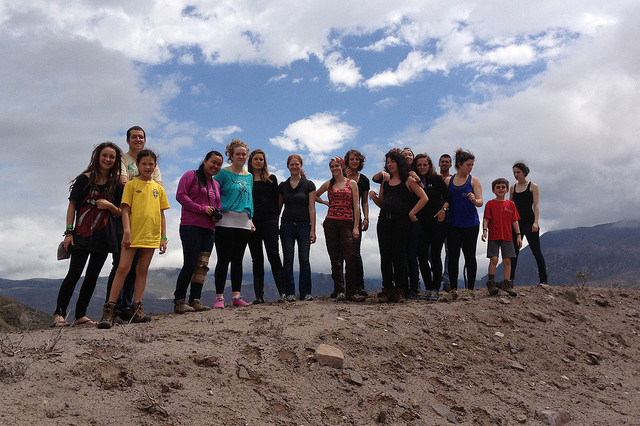 Lucrecia Choto
Lucrecia Choto -
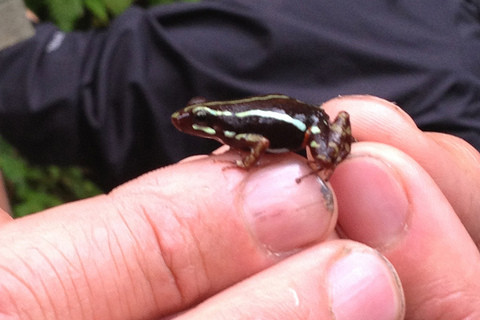 Poison Dart Frog in JocotocoLucrecia Choto
Poison Dart Frog in JocotocoLucrecia Choto -
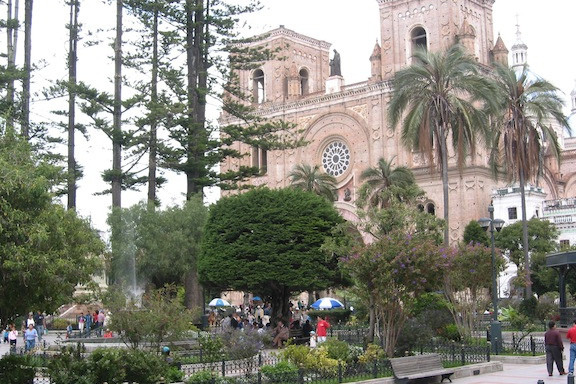 Cathedral Parque CalderoneJudy Blankenship
Cathedral Parque CalderoneJudy Blankenship -
 Judy Blankenship
Judy Blankenship -
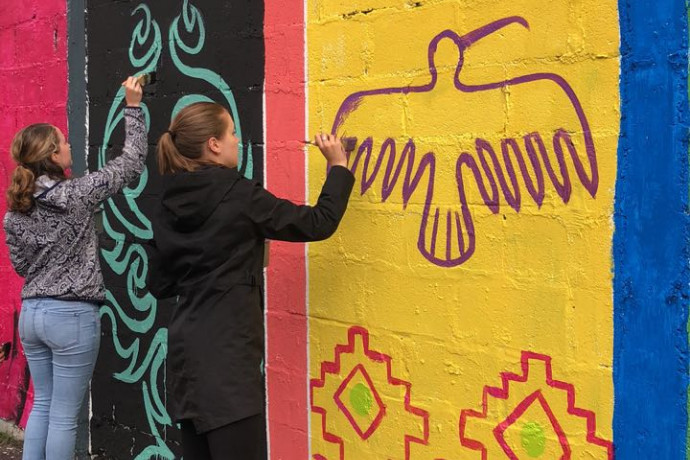
-
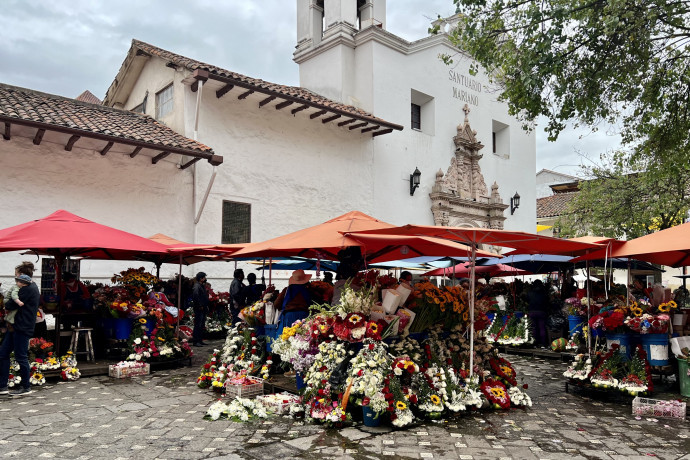 by Jada Liu
by Jada Liu -
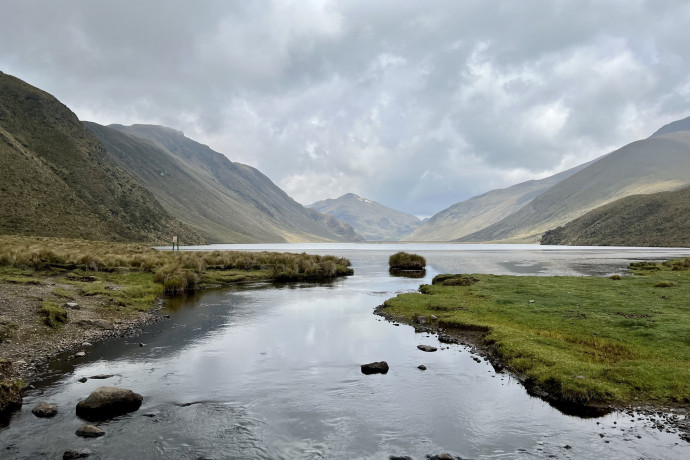 by Jada Liu
by Jada Liu
| Program Snapshot | |
| Semester: | Spring |
| Offered: | Annually |
| Estimated Dates: | Early January to mid-April |
| Program Focus: | Regional Area Study with Language Component |
| Prerequisites: | Spanish 201 with a “B” average or better in language study. Students must satisfy the Words and Numbers CORE requirement before participating in an overseas program. |
| Housing: | Host Families |
| Campus Contact: |
Kaitlin Sommerfeld Assistant Director, Overseas & Off-Campus Programs ksommerfeld@lclark.edu, 503-768-7295 |
Program Design
In cooperation with the Amauta Foundation, Lewis & Clark offers this study program in Cuenca, Ecuador. Academic study will focus on intensive language study, and the history, culture, and socio-economic institutions of Ecuador. Following an orientation program in Quito, the program is centered in Cuenca at the Amauta Spanish School and includes field trips to Jatun Sacha (primary rainforest) as well as local areas of interest, such as Cañar and Saraguro.
Cuenca de los Andes, the third largest city in Ecuador, is located in the southern part of the country, in a broad Andean valley, surrounded by mountains. Cuenca is just 3 hours from Guayaquil, the largest city in Ecuador, and 35 minutes flight from the political capital, Quito.
Cuenca has a “perennial spring” climate all year around. Cuenca de los Andes is Ecuador’s cultural and handicraft capital. A colonial city, it was declared by UNESCO a World Heritage Site. With a population exceeding 400,000, Cuenca still retains many features of a small town, particularly its friendly people. Like most Andean cities, Cuenca has a colonial layout, full of churches and markets. The city is surrounded by 4 rivers, one of them, the Tomebamba, divides the city into old and new towns. Between them they harbor a diversity of lifestyles. The people of Cuenca are called Cuencanos, and they are proud of the culture, traditions and customs that they have maintained.
Onsite Staff: The Resident Director of the Amauta Foundation is Narcisa Ullauri. Mrs. Ullauri is a native of Cuenca, Ecuador. She holds a bachelor’s degree in Social Communication from Universidad Estatal de Cuenca and two master’s degrees, one in Education Communication from Universidad Politécnica and the other in Cultural Studies from Universidad del Azuay. She has a diverse background in her work experience, ranging from being a professional tour guide in Ecuador, to being a professor at Universidad del Azuay, where she is also a member of the Academic Council in the Philosophy department. Mrs. Ullauri is responsible for all aspects for the program ranging from home-stay placement, arranging academic excursions and assuring the well being of program participants.
The Director of the School and the Spanish Department is Mayra Cardoso. Mrs. Cardoso received her degree in Education from Universidad Estatal de Cuenca from the Philosophy Department. She updates her teaching skills by attending education workshops sponsored by Oxford University Cambridge. She has taught Spanish to Brazilians at Colegio Pitágoras, was the Academic Coordinator for Spanish and English sections at Centro Binacional Abraham Lincoln in Cuenca. She has been the Director for the Spanish component of the Lewis & Clark College program since 1994. Now she is the Academic Director of the entire Lewis & Clark overseas program in Ecuador. She is also responsible for the recruitment and retention of Spanish language instructors, organizing other aspects of the program such as sports activities, conferences, meals and other duties as they become necessary.
Academics
Requirements Fulfilled:
General Education - This program fulfills the Global Perspectives general education requirement for students who successfully complete 8 or more semester credits. IS 284 fulfills the Historical Perspectives, or the Culture, Power, and Identity general education requirement.
BIO 115 fulfills the Scientific & Quantitative Reasoning Category A or Natural Sciences requirement (may not be applied to the Biology major).
Major / Minor Requirements - This program fulfills the overseas study requirement for the Latin American Studies and the Hispanic Studies minor (if SPAN 202 has been completed).
Credits: 16 credits (4 courses)
Curriculum:
IS 284: Contemporary Ecuador (4 credits)
This course explores different aspects of Ecuador through an anthropological optic. The main purpose is to provide students with information, conceptual tools, and methods with which to investigate and interpret their Ecuadorian experience. Class discussion and questions from students are very important.
The specific topics covered in the course are chosen anew each semester, in order to address current affairs and new anthropological work. Globalization, Andean prehistory, traditional medicine, identity politics, indigenous rights movements, gender roles, religion and society, race, ethnicity, witchcraft, agricultural economics, transnational migration and Plan Colombia are some of the topics included in recent courses. Social structure and culture in Cuenca are also included.
Some class assignments require students to investigate and report on questions about Cuenca and its environments. Course material is presented in required readings and class lectures. There are films and occasionally guest speakers to complement this material. Grades are based on exams, short writing assignments, and a term paper.
See syllabus here.
BIO 115: Biodiversity in Ecuador (4 credits)
This course is an introduction to Ecuador’s ecology and to conservation biology with an emphasis on Latin America and Ecuador in particular.
The first part of the course will be an overview of Ecuador’s main ecosystems and will introduce students to the general concepts of conservation biology and biodiversity at the species, genetic, and ecosystem levels before going on to examine in more detail the geographical and evolutionary factors responsible for Ecuador’s outstanding biodiversity. We will then explore the ecology, community structure, and ecological importance of each of Ecuador’s main geographical regions, including the Amazon.
The second part of the course will overview the threats to Ecuador’s biodiversity and the various problems faced by small populations of endangered species. Consideration for conservation strategies will be explored for individual species and for ecosystems both from theoretical and practical standpoints.
SPAN: (2 courses, 4 credits each)
Course level will be determined by previous subject study and placement exam results.
Excursions: Past programs have included a week-long biology field trip to the Wildsumaco Biological Station (Sumaco National Forest) and Yasuni National Park, a weekend cultural excursion to Cañar, a weekend cultural excursion to Saraguro with the opportunity to stay with indigenous host families, and a day trip to Cajas National Park, including a biologist-guided hike.
Student Life
Housing: Students live with carefully selected host families while in Cuenca. Homestays include meals, laundry, and a private bedroom. Each student will become an honorary member of their host family by participating in the daily life and routine of the household.
Cultural Activities: The Amauta Spanish School organizes cultural activities for students on a weekly basis. Some examples of cultural activities include a city tour of Cuenca, salsa dancing lessons, visits to museums, and cooking classes.
Volunteering: During the semester, students will have the opportunity to volunteer at different organizations in the Cuenca area. These volunteer activities promote cultural exchange between the students and their host country. Apart from learning about the reality of life in different parts of Ecuador, students practice their Spanish through daily conversations in their volunteer activities. Their work can be incredibly gratifying, stimulating, challenging, fun, and motivational, and for this the Amauta Foundation has worked hard to design a diverse and flexible program that suits each student’s interests. Institutions in which student have volunteered include:
-
Amaru Zoológico y Bioparque de Cuenca
-
Fundación El Arenal
-
Grupo de Mujeres de Chilcatotora
-
Centro de Salud de San Joaquín
-
Orfanatorio Tadeo Torres
-
Red Pakariñan
- Aula de Derechos Humanos “Fundación Somos Familia”
- Instituto San José de Calasanz
Cost
2023-2024 Fee Breakdown*
Total Fee (includes Tuition, Program Fee, and Health & Wellness Fee): $39,385
Tuition: $30,958
Program Fee: $8,390
Health & Wellness Fee: $37**
Included in the program fee are room/housing, board/meals, and administrative fees. Not included are airfare, passport and visa expenses, primary insurance coverage, photographs, books, immunizations, and incidentals.
*Fees are updated every February for the following academic year.
**The Health & Wellness Fee supports the operations of Wellness Services staff in delivering pre-program orientation services, as well as in providing health-related consultation regarding participant health needs. All students in the College of Arts and Sciences pay a mandatory fee of $37 per semester.
Stipend: Students will receive a stipend to cover the cost of meals and transportation costs not covered by the program fee.
Estimated Airfare (Round Trip PDX to UIO): $500 - $1,000
Estimated Travel Document Fees: Approximately $130
Estimated Health Insurance Fee: $1,943.50
All students participating in overseas programs are automatically enrolled in iNext, a supplemental travel insurance program. The fee for iNext is covered in the program cost. However, students are also required to have comprehensive health insurance during their time abroad. All students participating in overseas programs, both abroad and domestic, are automatically enrolled in the College’s student health insurance program. Similar to a regular semester on-campus, students participating in overseas programs may waive enrollment in the student health insurance program if they have other comprehensive health insurance (e.g., through a parent, guardian or employer) that 1) provides coverage for them in the geographic region in which they will be studying and 2) includes mental health benefits. Click here for more information regarding health insurance & overseas programs.
Program Preparation
Please note: the yellow fever vaccine is now required for entry into Ecuador. All program participants must have this vaccine before they leave for their program.
Application Process: Applications are due one year before the start of the program. The semester before the program, students who have been accepted will meet regularly for orientation. This orientation is meant to prepare the students for life in Cuenca by exploring literature and culture, and provides an opportunity for students to learn more about the logistical details of the program.
For more information about the application process, click here.
Travel: Students usually fly into the Quito airport (UIO), where they are met by a member of the Amauta Foundation staff and transported to the hotel for orientation.
Visa: Students will be required to apply for a visa in order to participate in this program. More information will be provided upon admission to the program.
Country-Specific Health Information: Click here to view specific health information for people traveling to Ecuador.
State Department Country Information: Click here to visit the State Department’s Ecuador page.
Ecuador, Cuenca
Blog Posts
Goodbye - But Just For Now
La Confesión de una Gringa de las Calles
Overseas and Off-Campus Programs is located in room 206 of Albany Quadrangle on the Undergraduate Campus.
MSC: 11
email overseas@lclark.edu
voice 503-768-7295
fax 503-768-7300
Director Blythe Knott
Overseas and Off-Campus Programs
Lewis & Clark
615 S. Palatine Hill Road MSC 11
Portland OR 97219
